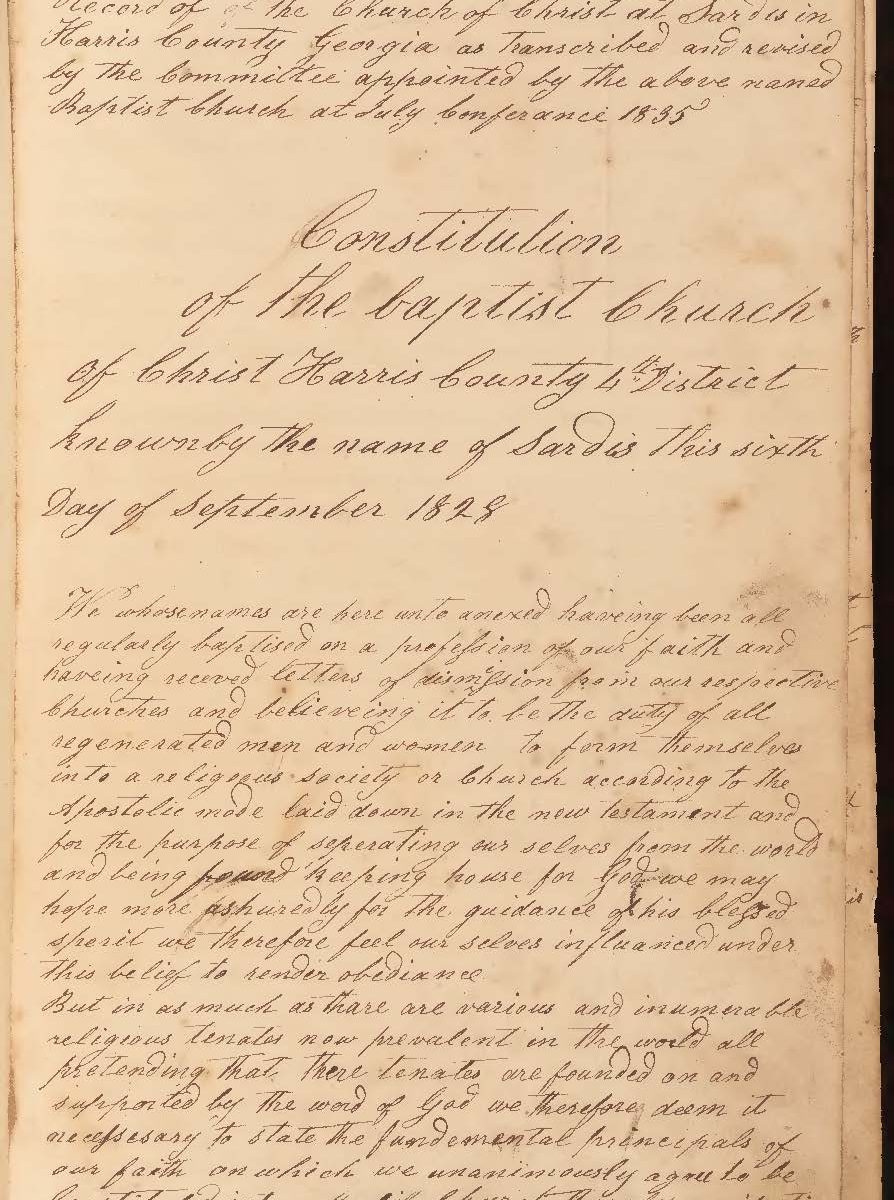Tag: Competitive Digitization Grant program
Henry L. Benning Civil War materials available online
The Digital Library of Georgia (DLG) is pleased to announce the availability of the Henry L. Benning Civil War materials collection at http://dlg.galileo.usg.edu/CollectionsA-Z/ghlb_search.html. The collection, which belongs to Columbus State University Archives, is available online thanks in part to the DLG’s Competitive Digitization grant program, a funding opportunity intended to broaden DLG partner participation for statewide historic digitization projects.
Henry L. Benning was born in Columbia County, Georgia in 1814. After finishing first in his class at the University of Georgia in 1834, he moved to Columbus in 1835. There, he was admitted to the bar, married Mary Howard in 1839, and entered his father-in-law’s firm. In 1840, Benning lost a race for the General Assembly, but was later elected to the state Supreme Court in 1853. After Lincoln’s election, Benning became one of Georgia’s most vocal supporters for secession. During the war, he served as Colonel of the 17th Georgia Infantry in twenty-one engagements including Antietam, Gettysburg, and Chickamauga. By the beginning of 1863, Benning rose to the rank of brigadier general. His regiment was the first part of the Army of Northern Virginia under Robert E. Lee and later under Braxton Bragg in the Army of Tennessee. After the war, Benning returned to Columbus and resumed the practice of law, dying on his way to the court in 1875.
Benning’s war correspondence deals with his service throughout the war and includes orders sent to him, reports of engagements, both those sent to him and those he submitted to his superiors.
David Owings, head of Columbus State University Archives states: “General Benning is certainly an important figure in Georgia’s history, who resonates nationally because of his role in the Civil War. This material will attract broad national interest from scholars as well as those with a casual interest in the Civil War. We are excited that the Digital Library of Georgia has helped us increase access to our collections by making General Benning’s involvement in this important period of our history available online.”
About the Columbus State University Archives
Established in 1975, the Columbus State University Archives, located on the third floor of the Simon Schwob Memorial Library, serves as a repository for materials documenting the history of Columbus State University as well as the city of Columbus and the broader Chattahoochee Valley area.
About the Digital Library of Georgia
Based at the University of Georgia Libraries, the Digital Library of Georgia http://dlg.galileo.usg.edu/ is a GALILEO initiative that collaborates with Georgia’s libraries, archives, museums and other institutions of education and culture to provide access to key information resources on Georgia history, culture and life. This primary mission is accomplished through the ongoing development, maintenance and preservation of digital collections and online digital library resources. DLG also serves as Georgia’s service hub for the Digital Public Library of America and as the home of the Georgia Newspaper Project, the state’s historic newspaper microfilming project.


